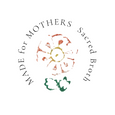Postpartum hormones

I wanted to clear a few things up, in hope to shed some more light on postpartum vibes for new mummas. Why you need to create a safe cocoon for yourself following birth. Nurturing your every need. Respecting your body. Protecting your inner-self. For as long as it takes to feel ready to emerge and embrace life outside your cocoon.
Did you know your oestrogen levels drop up to 95% after delivery of your placenta and that your progesterone drops to nearly zero soon after? Progesterone playing a huge role in our 'chill' state, it explains a lot about the rollercoaster you go through in those early days recovery.
Rewinding a little here, hormones can be understood as messengers in the body. Their presence and correct balance means that your body runs smoothly and efficiently. And when you are pregnant your body is flooded with high amounts of oestrogen and progesterone, thyroid hormones and cortisol. It's a hormone surge.
As mentioned before, there is a huge drop in what we know as our female hormones post delivery, oestrogen and progesterone. But another very important hormone change is the crash of a hormone called corticotropin-releasing-hormone (or CRH). This hormone plays a key role in triggering the release of cortisol in the body, the messenger responsible for our stress response. What research is showing us here is that if you are not emotionally and physically supported in those early weeks postpartum, CRH can be hindered long term and it can contribute to a host of debilitating symptoms for the many months, maybe even years, ahead.
This is an extremely important discussion explaining why the importance of supporting a new Mumma is non negotiable. It is thanks to the wonderful research and work we have of experts in the field, like Dr Oscar Serrallach, that we have the data to back up what we should already know.
Traditional cultures have been conscious to hold the new Mumma, in many varying practices that are as diverse as the countries they originate from. But fundamentally their is a central practice of nurturing a new mother that is given great respect and priority. But on the flipside postpartum mother-centered-support is something we are only now regaining in Western society. Taking a look at cultural practices of following a supportive diet, holding the mother in her space, and allowing her the time to heal and rest is a wonderful start to re-defining postpartum care. Make sure it is something you define and outline in your postpartum plan.
References
Serrallach, O., (2018). The Postnatal Depletion Cure (1st ed.). Sydney, NSW: Hachette
Allison, J., (2015). Golden Month. Auckland, New Zealand: Beatnik Publishing.






























